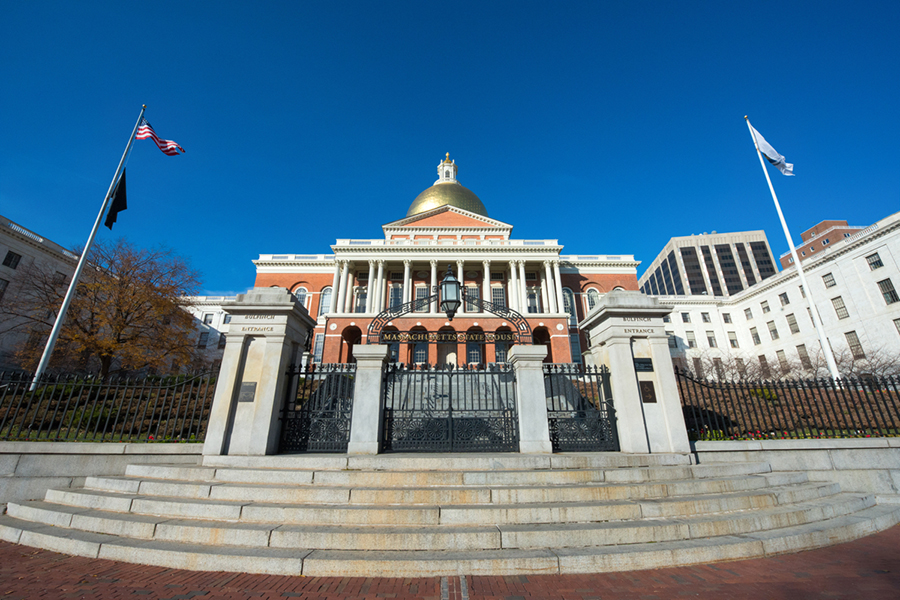Massachusetts Legislature Passes Bill for $15 Minimum Wage
The bill also includes a policy to establish a paid family and medical leave policy in addition to a state sales tax holiday. The legislation is now headed for Gov. Charlie Baker's desk.

Photo via iStock/RodrigoBlanco
With the flick of Gov. Charlie Baker’s pen, Massachusetts could join New York and California to become the third state in the country with a $15 minimum wage.
On Wednesday, a so-called “grand bargain” bill—which, in addition to the bump in base pay, includes provisions for a paid family and medical leave policy and an annual sales tax holiday—rushed its way through both chambers of the state legislature. The compromise could effectively quash three ballot questions voters were set to tackle in November, and has already received preliminary plaudits from Gov. Baker, who told MassLive “it certainly fits the contours of what” he’s looking for.
Should the bill be signed into law, minimum wage wouldn’t jump overnight. Instead, it would increase gradually from $11 per hour to $15 per hour over the course of five years. As this growth transpires, time-and-a-half pay on Sundays and holidays would be subsequently phased out. Tipped workers, meanwhile, would see their base pay rise from $3.75 to $6.75 over five years.
Raise Up Massachusetts, the coalition behind the $15 minimum wage ballot question, hasn’t decided if it will pull the initiative just yet. Though the group, which is comprised of community, faith, and labor organizations, applauded the increase to a $15 minimum wage, it expressed concern for the lack of growth in tipped-workers’ pay. In a statement, Raise Up Massachusetts also said it is “strongly opposed” to the elimination of Sunday time-and-a-half pay.
On the other hand, the wage increase has drawn concern from the business community. Leaders said the new policies could be quite costly for employers, while also acknowledging that the chance for a seat at the negotiating table is more promising than a flat-out loss in November.
“A lot of small businesses out there are fearful and angry over a potential $15-per-hour minimum wage and a new paid leave mandate, but we have to look at the reality of what we might be able to do through a compromise instead of what would occur through a ballot initiative,” Jon B. Hurst, the president of the Retailers Association of Massachusetts, told the Boston Globe.
In addition to the wage increase, the bill includes provisions to establish a paid family and medical leave program at an estimated cost of $775 million, according to MassLive. Under the proposed policy, employees would be eligible for a maximum of 12 weeks of paid family leave and 20 weeks of paid medical leave.
Meanwhile, the Retailers Association of Massachusetts already had enough signatures to put forward a ballot question to reduce the sales tax from 6.25 percent to 5 percent in November. The new bill leaves the 6.25 percent rate in place while instituting an annual sales tax holiday.
Ultimately, the bill provides an opportunity for labor and business groups to find common ground while potentially offering an exit ramp to avoid costly campaigns for several ballot initiatives.
“If any of these three go to the ballot, they are going to pass,” Hurst told the Globe. “You don’t reach compromises on the ballot. You reach compromise through the legislative process.”


